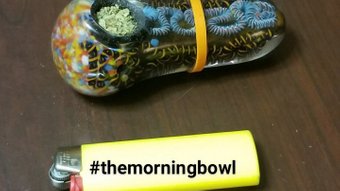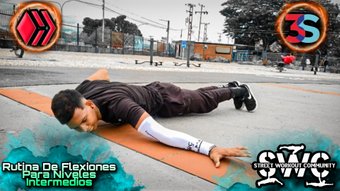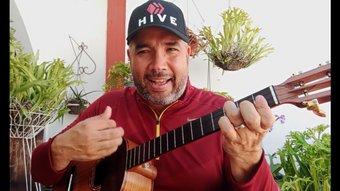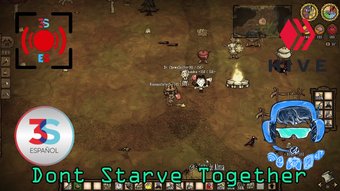Proverbio del Día # 2 – La Caja de Clavos / Proverb of the Day # 2 - The Nail Box
2
About :
El Sabio Salomón escribió en el libro de Proverbios capítulo 16, versículo 24: “Panal de miel son las palabras amables: endulzan la vida y dan salud al cuerpo.”
The Wise Solomon wrote in the book of Proverbs chapter 16, verse 24: "Gentle words are a honeycomb: they sweeten life and give health to the body."
¿Sabías que con tus palabras puedes dar vida o quitarla? Tus palabras pueden edificar o destruir. Les cuento una pequeña historia:
Did you know that with your words you can give life or take it away? Your words can edify or destroy. I tell you a little story:
Había una vez un niño que tenía muy mal genio. Todos los días se peleaba con los compañeros de colegio, con sus padres, con su hermano… un día, su padre decidió hacerle un regalo. El niño, al ver el paquete, lo desenvolvió con gran curiosidad y quedó sorprendido al ver lo que contenía en su interior: una caja de clavos. Al ver la cara de asombro del niño, el padre le pidió: “cada vez que pierdas el control, cada vez que contestes mal a alguien y discutas, clava un clavo en la puerta de tu habitación”.
Once upon a time there was a boy who had a very bad temper. Every day he fought with his schoolmates, with his parents, with his brother... one day, his father decided to give him a present. The boy, upon seeing the package, unwrapped it with great curiosity and was surprised to see what was inside: a box of nails. Seeing the boy's astonished face, the father asked him: "Every time you lose control, every time you talk back to someone and argue, put a nail in the door of your room".
El primer día, el niño clavó 37 clavos en la puerta. Con el paso del tiempo, el niño fue aprendiendo a controlar su rabia, pues le era más fácil controlar su temperamento que clavar los clavos en la puerta. Finalmente llegó el día en que el niño no perdió los estribos y no tuvo que clavar más clavos.
On the first day, the boy hammered 37 nails in the door. As time went by, the boy learned to control his anger, as it was easier for him to control his temper than to drive the nails in the door. Finally the day came when the boy did not lose his temper and did not have to hammer any more nails.
El padre orgulloso, le entregó al niño otro regalo. En esta ocasión, el paquete contenía unas tenazas. Ante el asombro del niño, el padre le sugirió que por cada día que pudiera controlar su genio, sacase un clavo de la puerta.
The proud father gave the boy another gift. This time, the package contained a pair of pliers. To the boy's amazement, the father suggested that for every day he could control his temper, he should pull a nail out of the door.
Los días transcurrieron y al cabo de un tiempo el niño logró quitar todos los clavos de la puerta. Conmovido por ello, el padre tomó a su hijo de la mano y lo llevó hasta la puerta, y con suma tranquilidad le dijo: “Has hecho bien, pero mira los hoyos… la puerta nunca volverá a ser la misma. Cuando dices cosas con rabia, molesto y ofensivo, dejas cicatriz como esas por las palabras que dijiste”. El niño comprendió la enseñanza de su padre y descubrió el poder de las palabras.
The days went by and after a while the boy managed to remove all the nails from the door. Moved by this, the father took his son by the hand and led him to the door, and very calmly said, "You have done well, but look at the holes...the door will never be the same again. When you say things in anger, upset and offensive, you leave scars like that because of the words you said." The boy understood his father's teaching and discovered the power of words.
Mi gente, ¿Quién no ha discutido alguna vez con alguien? ¿Quién no ha dicho en alguna ocasión algo de lo que después se ha arrepentido? Las palabras una vez que las dices, ya no las puedes recoger. Las heridas verbales pueden seguir sangrando incluso después de mucho tiempo y pueden llegar a ser tan dañinas como una herida física.
My people, who has never argued with someone, who has never said something they later regretted? Words, once you say them, you can't take them back. Verbal wounds can continue to bleed even after a long time and can become as damaging as a physical wound.
Recuerda esto: Es mejor un silencio a tiempo que una disculpa demasiado tarde.
Remember this: A silence in time is better than an apology too late.
Si eres duro con alguien, lo más probable es que alimentes el fuego de la ira, y esa persona tendrá una actitud hostil. La negatividad hacia otra persona impulsará su rabia. Sin embargo, lo contrario también es cierto. Las palabras amables son la cura perfecta para la ira.
If you are hard on someone, you will most likely fuel the fire of anger, and that person will have a hostile attitude. Negativity toward another person will fuel their anger. However, the opposite is also true. Kind words are the perfect cure for anger.
Otro proverbio de Salomón dice: “La blanda respuesta quita la ira; Mas la palabra áspera hace subir el furor” (15: 1)
Another proverb of Solomon says: "A soft answer turneth away wrath: but a harsh word stirreth up anger" (15: 1).
Aprendamos a medir nuestras palabras, las palabras amables pueden ayudar al que está triste, una palabra de aliento puede provocar tremenda fuerza en el corazón de una persona. Piensa en lo maravilloso que se ha sentido cuando alguien te ha consolado en un momento difícil de la vida. Esas palabras de amor y lealtad nos han mantenido en los momentos más oscuros.
Let us learn to measure our words, kind words can help the one who is sad, a word of encouragement can provoke tremendous strength in a person's heart. Think of how wonderful it has felt when someone has comforted you in a difficult time in life. Those words of love and loyalty have sustained us in the darkest of times.
También tengamos en consideración lo siguiente, Si las palabras son importantes ¿cómo deberíamos decirlas? Analicemos no sólo nuestras palabras, sino cómo las decimos… y recordemos que ellas dan vida o podrían ocasionar la muerte.
Let us also take into consideration the following, If words are important how should we say them? Let us analyze not only our words, but how we say them... and remember that they give life or they could cause death.
Recordemos eso y nuestro proverbio de hoy: “Panal de miel son las palabras amables: endulzan la vida y dan salud al cuerpo.”
Let's remember that and our proverb for today, "Honeycomb of honey are kind words: they sweeten life and give health to the body."
Proverbio de la Biblia / Proverb from the Bible
Fábula tomada de internet / Fable taken from internet
Traducción/Translation: DeepL translator
Diseño/Desing: Kike Castañeda - Ilustrator
Video & Photography: Kike Castañeda
Audio: Éxitos 100.1 FM
.jpg)
Tags :
Their limit for today is $0!






























Comments:
Reply:
To comment on this video please connect a HIVE account to your profile: Connect HIVE Account